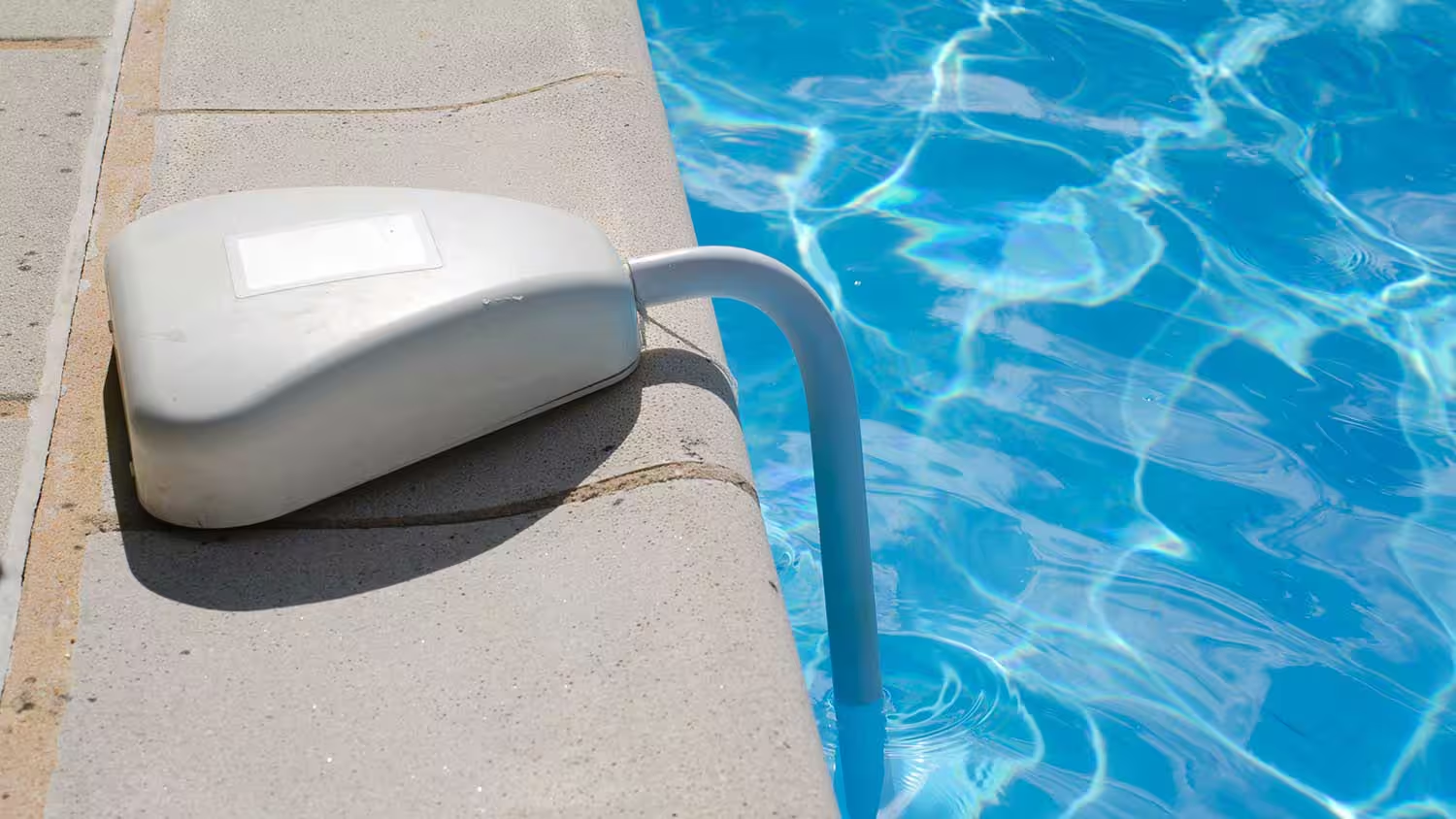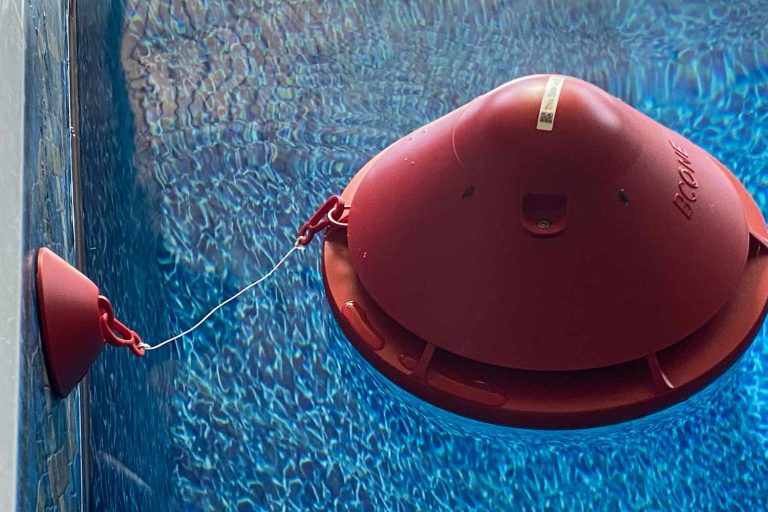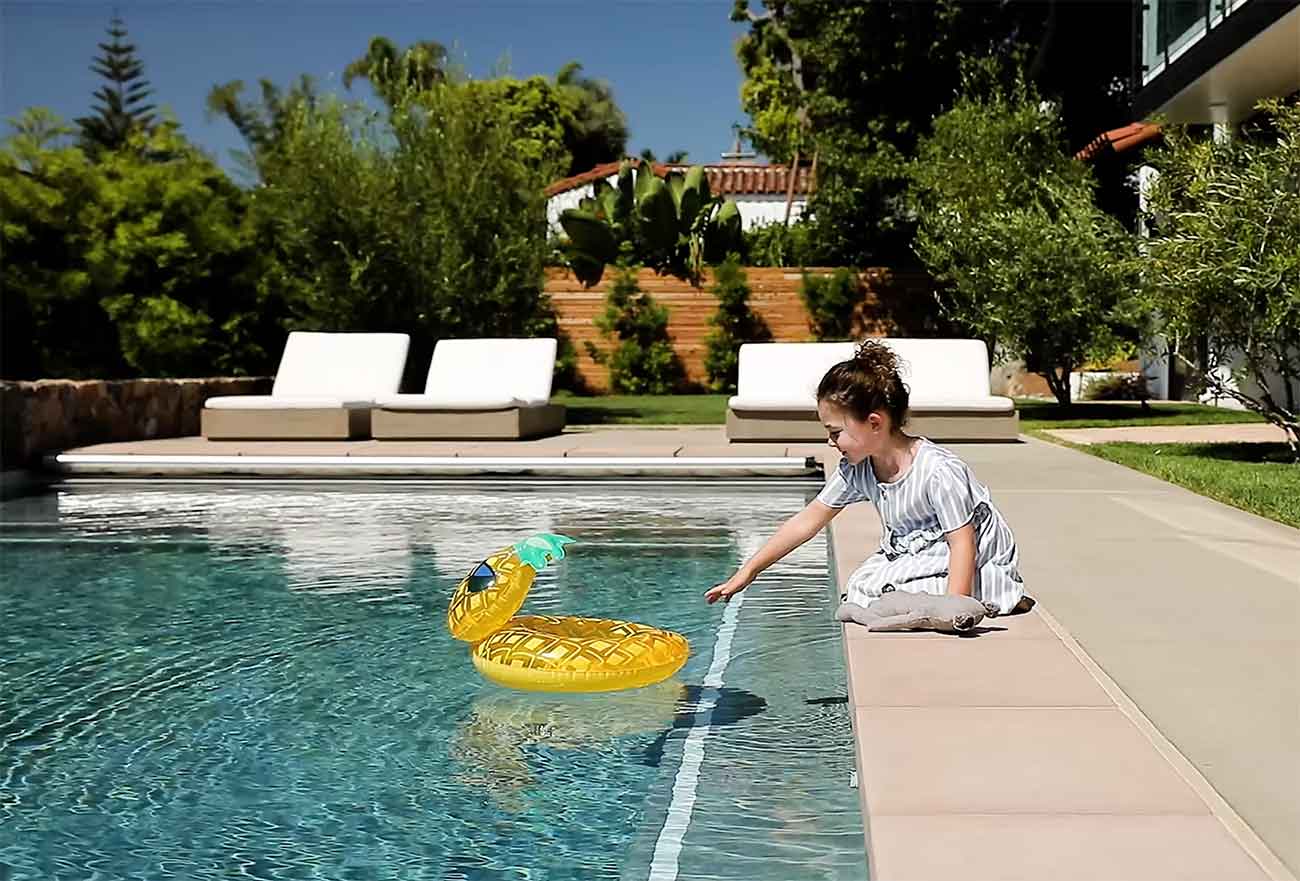For pool owners, the joys of having a private oasis come with significant responsibilities. Ensuring the safety of everyone, especially children and pets, is paramount. One critical measure to prevent accidents is installing a reliable pool alarm. This blog post will guide you through the best pool alarms available, their essential features, and how they can help keep your loved ones safe.
By the end of this guide, you’ll have a comprehensive understanding of the types of pool alarms, their key features, top products on the market, and how to install and maintain them for optimal safety. Let’s dive in!
Types of Pool Alarms

Underwater Motion Alarms
Underwater motion alarms detect disturbances beneath the water’s surface. They are highly effective, sensing even the slightest movements to ensure prompt detection of any unexpected activity in your pool.
These alarms use sonar or infrared technology to monitor changes in water pressure and movement. When an object enters the pool, the alarm triggers an alert, making it an excellent choice for families with young children or pets.
One advantage is their ability to function regardless of weather conditions, unlike other alarms affected by wind or rain. However, they might be more complex to install.
Surface Wave Sensors
Surface wave sensors detect disturbances on the water’s surface, making them effective for quick hazard detection.
These alarms float on the water and react to waves created by an object or person entering the pool. They are easy to install, usually just requiring placement in the water, making them popular among swimming pools melbourne owners.
However, they can sometimes issue false alarms due to wind or heavy rain. High-quality sensors can help differentiate between actual threats and environmental factors to minimise false alerts.
Gate and Door Alarms
Gate and door alarms prevent access to the pool area, ensuring unauthorised individuals, particularly young children, cannot enter without triggering an alert.
These alarms are installed on gates, doors, or windows leading to the pool. When entry points are opened, the alarm sounds, notifying the homeowner. They are a crucial part of any pool safety strategy, acting as a first line of defence.
While effective at preventing access, they should be used with other alarms for maximum safety.
Wearable and Wristband Alarms
Wearable and wristband alarms offer personalised safety, especially for young children or pets. These devices are worn on the wrist and trigger an alarm if submerged in water.
They use sensors to detect water submersion and immediately send a signal to a base unit, usually located within the home. This type of alarm is particularly useful for families with toddlers or pets, providing extra protection.
Wearable alarms are portable and easy to use, but ensure they are comfortable to encourage consistent use. Regular checks and maintenance are necessary for proper function.
Key Features to Consider When Choosing a Pool Alarm
Reliability and Accuracy
When evaluating pool alarms, reliability and accuracy should be top priorities. An effective pool alarm must consistently detect real threats while minimising false alarms. Investing in a high-quality, trustworthy alarm ensures you and your family can rely on it during critical moments.
Look for alarms with advanced sensing technology and positive user reviews for reliability. An alarm with frequent false alarms can become a nuisance and may eventually be ignored, defeating its purpose.
Installation and Set-Up
Ease of installation and set-up is crucial. Some pool alarms require professional installation, while others are designed for easy DIY installation. Consider your comfort level with setting up the device and whether you need assistance.
Clear, detailed instructions and customer support can simplify the installation process. Some alarms come with step-by-step guides or online resources to help you get started. Choose a model that aligns with your installation preferences and abilities.
Battery Life and Maintenance
Battery life and maintenance are essential considerations for any pool alarm. A long-lasting battery ensures continuous protection without frequent replacements, while minimal maintenance keeps the alarm functioning effectively over time.
Choose alarms with rechargeable batteries or those known for extended battery life. Regular maintenance, such as cleaning sensors and checking battery levels, ensures the alarm remains in optimal working condition. Some alarms offer low-battery alerts to remind you when it’s time for a recharge or replacement.
How to Install and Maintain Your Pool Alarm for Optimal Safety
Step-by-Step Installation Guide
Installing a pool alarm correctly is crucial for its effectiveness. Here is a step-by-step guide to help you get started:
- Choose the Right Location: Place your alarm according to the manufacturer’s recommendations. For underwater and surface alarms, ensure they cover the entire pool area.
- Follow Manufacturer Instructions: Each alarm comes with specific installation guidelines. Follow these instructions carefully to ensure proper functioning.
- Test the Alarm: After installation, test the alarm to ensure it responds accurately to disturbances. Make adjustments as needed to optimise performance.
Tips for Regular Maintenance
Regular maintenance is essential to keep your pool alarm in optimal working condition:
- Clean Sensors: Periodically clean the sensors to prevent dirt and debris from affecting performance.
- Check Battery Levels: Monitor battery levels and replace or recharge as necessary to avoid downtime.
- Conduct Routine Tests: Regularly test the alarm to ensure it functions correctly. Address any issues promptly to maintain safety.
Elevate Pool Safety with the Right Alarm
Pool alarms play a vital role in ensuring the safety of pool areas, providing peace of mind for pool owners by alerting them to unauthorised access or potential dangers. By understanding the various types of alarms available, such as surface wave sensors, subsurface disturbance alarms, and wearable sensors for children, along with key features to consider, including sensitivity settings, ease of installation, and battery life, you can make an informed decision that best suits your needs.
Proper installation and regular maintenance are crucial for the optimal performance of pool alarms. Ensuring they are correctly positioned and routinely tested can prevent false alarms and ensure they function when needed most. Moreover, integrating additional safety measures, such as pool covers, fencing, and supervision, can further enhance the security of your pool area.
Investing in a reliable pool alarm is a proactive step towards preventing accidents and protecting your loved ones. Don’t wait until it’s too late—act now to enhance your pool’s safety measures. By doing so, you can enjoy your oasis with confidence, knowing that you have taken significant steps to safeguard those who matter most to you.


